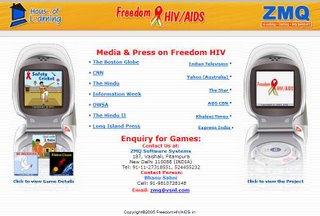A Berkeley-based NGO, Venture Strategies for Health and Development, is working to win developing countries' regulatory approval for use of misoprostol in treatment of postpartum hemorrhage. Nigeria and Ethiopia are two early adopters of the technology. The report below underscores the drug's efficacy in settings where other drugs simply cannot reach. Misoprostol is heat stable, easy to administer, and safe at a wide range of doses.
Ben
Cheap drug to make childbirth safer in poor countries
October 2006, ScidevNet
The abortion drug misoprostol can be used to help save the lives of women who bleed heavily after giving birth, say researchers. The condition is a major killer of women in developing countries.
The results of a clinical trial in rural India published today (6 October) in The Lancet indicate that misoprostol reduced the incidence of postpartum haemorrhage by almost half. Death due to postpartum haemorrhage accounts for almost 30 per cent of maternal deaths in India, where nearly half of all births take place in the home or in facilities without a trained gynaecologist or obstetrician in attendance.
"The researchers showed that giving women misoprostol after birth is a safe, inexpensive means of preventing postpartum haemorrhage from occurring". "This advance has the potential to save thousands of lives each year." The researchers say it is "currently the only available pharmacological option for preventing postpartum haemorrhage and reducing postpartum blood loss in these communities".
A major concern is the potential for the misuse of misoprostol. The drug is available, although illegally, as an over-the-counter pill. Approved for use in India in 2002, it is only supposed to be
taken under medical supervision, yet it is sold in several pharmacies.
Link to full paper in The Lancet
Reference: The Lancet 368, 9543 (2006)

